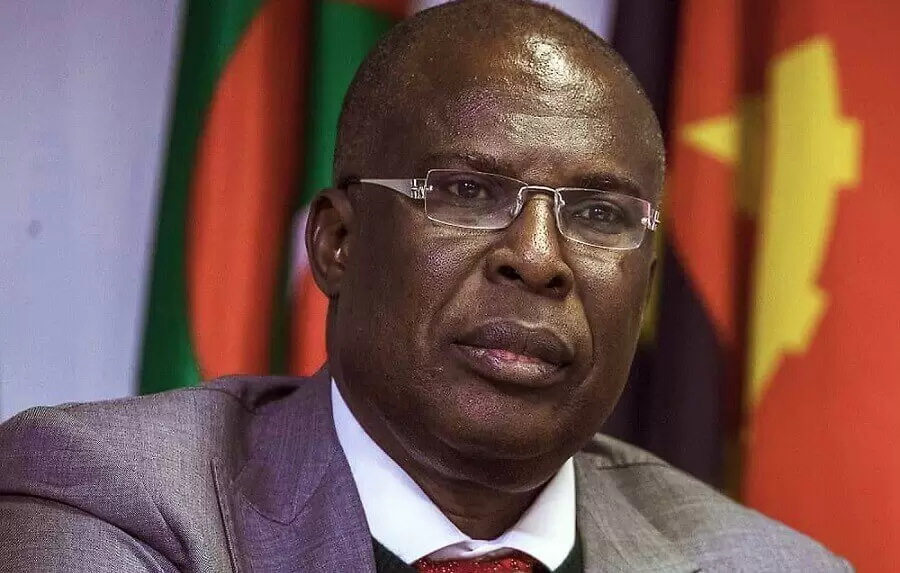Energy Crisis: Nigeria To Boost Gas Exports To Europe Through Trans-Sahara Pipeline Project
The current energy crisis in Europe which was induced by the war between Russia and Ukraine has opened opportunity for Nigeria to boost gas exports to Europe.
The Minister of State for Petroleum Resources, Timipre Sylva said this on Monday in Abuja at a meeting on the reactivation of the Trans-Saharan Gas Pipeline Project.
Advertisement
The project involves three countries made up of Nigeria, Niger Republic and Algeria.
The energy crisis in Europe worsened on Monday as the government of Austria agreed with utility Verbund to convert a reserve, gas-fired power plant so that it can produce electricity with coal.
The move is being planned should restricted gas supplies from Russia result in an energy emergency.
Austria gets 80 per cent of its gas from Russia and since the war in Ukraine started, it has been scrambling to find alternative suppliers.
Russian gas flows to Europe fell short of demand last Friday, coinciding with an early heatwave gripping its south and boosting benchmark prices already lifted by concerns the continent may struggle to build up storage in time for winter.
Advertisement
Russia is the third-largest oil producer behind the United States and Saudi Arabia. But Russia is the largest oil and products exporter in the world, and Europe depends on the nation for supplies.
The European Union’s reliance on Russian gas and the risk that Moscow could cut supplies in retaliation for economic sanctions imposed after its invasion of Ukraine has been a headache for the bloc, prompting it to build up inventories and seek alternative supplies.
Speaking at the meeting, Sylva charged hydrocarbon-rich African nations to urgently harness their huge gas reserves to close the widening energy gulf created by the lingering Russia-Ukraine hostilities.
He described the Trans Sahara Gas Project as very important to Nigeria because it would help to boost revenue as well as serve as a basis for clean energy source.
Nigeria is pursuing energy transition in order to promote economic growth and is massively investing in gas to reduce carbon emissions whilst continuing to exploit hydrocarbon resources.
Advertisement
Currently, natural gas is the energy transition fuel for Nigeria and the government is seeking investments to be able to deliver this energy in the most sustainable.
Africa has natural gas reserves of over 620 trillion cubic feet as of 2021, as most countries including Nigeria have chosen gas as a transition fuel.
Nigeria has the largest natural gas deposit in the continent with over 200 trillion cubic feet.
The Minister said, “With what is happening in the global energy market, we need to take our gas to Europe. Gas is now a weapon of war between Ukraine and Russia.
“Let’s not waste time. We need to fast-track it. It was meant to start from the south of Nigeria to the end of Nigeria, which is the AKK pipeline already under construction.
“Then from Nigeria to Algeria through the Niger Republic. We as Africans can show the world that we can come together to boost regional integration which the world wants to see. Funders of this project have shown interest in investing in it. We can grow our reserves up to 600 TCF in Nigeria.
Advertisement
“Algeria is also a gas nation, likewise Niger. We can harness these resources and fast track the project as quickly as possible.”
Also speaking, the Algerian Minister of Energy and Mines, Mr Mohamed Arkab said there is need to intensify the implementation of the gas project.
He said, “TSGP will have a significant and positive impact on the socio-economic development of our countries.
“The reactivation of the TSGP project takes place in a particular geopolitical and energy context, marked by strong demand for gas and oil, on the one hand, and by a stagnant supply due to the drop in oil and gas investments, started in 2015, on the other hand.
“This situation has been induced by the successive financial crises and the climate agenda, aimed at achieving carbon neutrality in the short term, without taking into account at achieving specificities of each continent and each country.
“While being fully part of the project aimed at decarbonizing the oil and gas industry in short term, and at achieving carbon neutrality in the longer term, we remain convinced that a global and efficient energy transition cannot take place without the contribution of hydrocarbons.”
ENDS



